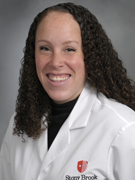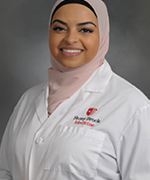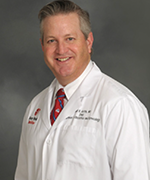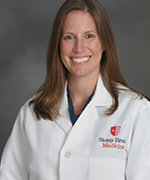
What is PCOS?
Polycystic ovary syndrome (PCOS) affects around 60,000 women in Suffolk County; that’s around 1 in 10 women of childbearing age. It's a hormonal condition that can affect a woman’s appearance, her overall health, and her fertility.
PCOS is associated with the excess production of certain hormones called androgens, often associated with insulin resistance. It can affect a woman’s metabolic, endocrine and reproductive systems. It is one of the most common causes of irregular menstrual cycles and infertility, as the high levels of androgens interfere with the development and release of eggs.
For some, metabolic changes can result in weight gain, and the hormonal changes can be responsible for acne, excess body hair, facial hair and male pattern baldness. PCOS can also increase the chance of developing uterine cancer in adulthood. These PCOS symptoms and consequences can have a negative impact on body image and mental health.
PCOS can be associated with other related health disorders including obesity, insulin resistance, high blood pressure and high cholesterol.
Diagnosing PCOS
In many cases, the signs and symptoms of PCOS develop in adolescence Acne and irregular periods are common in growing teenagers, and doctors need to be able to gauge what is normal, and what is likely to be abnormal and may be PCOS related. Missing one or two periods is not unusual for a teenager; missing six months probably is. The Stony Brook PCOS team includes experts in both adolescent and adult PCOS care.
For PCOS diagnosis, doctors look for at least two of the three following symptoms:
- irregular or infrequent periods
- a high level of specific hormones (or symptoms of the hormones like acne)
- enlarged ovaries or multiple cysts
In normal ovulation the egg (follicle) ruptures through the outer surface (capsule) of the ovary during ovulation. In women with PCOS, high androgen levels cause an excess number of small follicles to grow, but interfere with ovulation, resulting in a number of follicles (eggs) accumulating under the outer capsule of the ovary. This is why the disease, though metabolic in origin, has been named Polycystic Ovary Syndrome, and why it can be difficult to get pregnant with PCOS.
PCOS Treatment
Although there is no way to cure PCOS permanently, there are many treatments available to reduce the impact PCOS can have on health, fertility and appearance. The clinical team should include endocrinologists, gynecologists, fertility experts, primary care providers, cardiologists, weight loss experts, dermatologists, mental health providers and nutritionists as they are needed.
Stony Brook has developed an interdisciplinary PCOS program, with the goals of providing faster diagnoses, and easier access to an interdisciplinary group of specialists who can manage the various components of treatment. The clinical team may include endocrinologists, gynecologists, fertility experts, nutritionists, dermatologists and mental health providers as they are needed.
Every patient’s symptoms and goals are different and they may change over time. Nutrition and weight loss programs are paramount to help improve many of the symptoms of PCOS and prevent other negative health consequences. Many patients use hormone therapy to regulate their periods and improve excess hair growth and acne. A medication called Metformin may be prescribed for PCOS to help control blood sugar levels and obesity. Other aesthetic programs like laser hair removal may be helpful for those troubled by unwanted hair growth. For women struggling to conceive, medications can be used to help ovulation happen.
Because every patient may have slightly different symptoms and require a unique treatment plan, a dedicated nurse navigator will work with you as your main contact for patients and help them to arrange appointments and manage their treatment plan. A nutritionist is available to support you in healthy nutrition choices and teach you how to lose weight with PCOS.

Ashley M. Budden, MSNED, RN,
Nurse Navigator PCOS
For questions or more information about the PCOS Center






